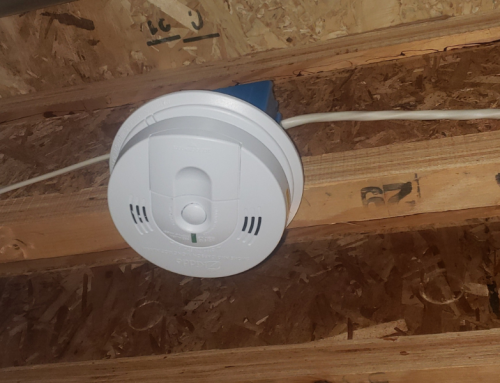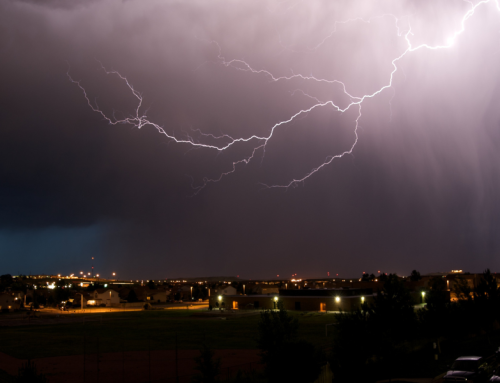The Ultimate Guide to Backup Power Solutions for Your Home and Business
Unexpected power outages can disrupt daily life, cause business downtime, and even pose safety risks. Whether due to severe weather, grid failures, or unforeseen electrical issues, losing power is never convenient. That’s why having a reliable backup power solution is essential for both homeowners and businesses. In this guide, we’ll explore different types of backup power options and help you determine the best solution for your needs.
Why You Need a Backup Power Solution
A power outage can happen at any time, and its impact can range from mild inconvenience to significant financial loss. Here are a few key reasons why investing in a backup power system is a smart decision:
- Uninterrupted Power Supply – Keep essential appliances, medical equipment, and security systems running.
- Prevent Data Loss – Businesses can protect critical data and maintain operations.
- Increase Home Safety – Avoid the risks associated with power failures, such as frozen pipes, food spoilage, and lack of heating or cooling.
- Maintain Productivity – Work from home without worrying about internet and power interruptions.
Types of Backup Power Solutions
There are several backup power options available, each with its own advantages. The best choice depends on your power needs, budget, and installation preferences.
1. Standby Generators
A standby generator is a permanent backup power solution that automatically turns on when the main power source fails. These generators are typically powered by natural gas or propane and can support an entire home or business.
Pros:
- Automatic startup during outages
- Powers essential circuits or the entire property
- Reliable for long-term power outages
Cons:
- Higher initial cost
- Requires professional installation
- Regular maintenance needed
2. Portable Generators
Portable generators offer a flexible and cost-effective option for temporary power needs. They run on gasoline, diesel, or propane and need to be manually started during an outage.
To safely connect a portable generator to your home’s electrical system, an interlock kit can be installed. An interlock system allows your generator to power your home’s breaker panel safely by preventing the main breaker and generator breaker from being turned on at the same time. This ensures that electricity doesn’t backfeed into the utility grid, which could be hazardous to utility workers and your home’s electrical system.
Pros:
- Affordable and easy to store
- Can be used for multiple purposes, including camping and outdoor events
- No permanent installation required
- Can be safely integrated into your home’s system with an interlock kit
Cons:
- Limited power capacity
- Requires manual operation and refueling
- Emits fumes, requiring outdoor use
3. Battery Backup Systems
Battery backup systems, also known as uninterruptible power supplies (UPS), store energy for immediate use during an outage. They are often paired with solar panels for sustainable energy solutions.
Pros:
- Silent and emission-free
- Requires minimal maintenance
- Can integrate with solar power systems
Cons:
- Limited storage capacity
- Higher initial investment
- May not support heavy electrical loads
4. Solar-Powered Backup Systems
Solar-powered backup systems use energy collected from the sun to provide power during outages. They often include battery storage to ensure energy availability even at night.
Pros:
- Renewable and environmentally friendly
- Low operating costs after installation
- Can reduce energy bills over time
Cons:
- Dependent on sunlight availability
- Higher upfront costs
- Requires battery storage for nighttime use
Choosing the Right Backup Power Solution
To select the best backup power system for your home or business, consider the following factors:
- Power Needs: Determine how much power you need to keep essential appliances and devices running.
- Budget: Assess both upfront costs and long-term maintenance expenses.
- Space Availability: Consider the space required for installation and storage.
- Fuel Source: Choose between gas, propane, solar, or battery power based on availability and convenience.
- Usage Frequency: If outages are frequent in your area, a more permanent solution like a standby generator may be best.
Professional Installation and Maintenance
While some backup power solutions, such as portable generators, can be set up by homeowners, others require professional installation. Hiring a licensed electrician ensures:
- Safe and compliant installation
- Proper load calculations to avoid electrical overloads
- Regular maintenance to keep the system in peak condition
- Correct installation of interlock kits for portable generators
Be Prepared for the Next Outage
Power outages are unpredictable, but with the right backup power solution, you can stay prepared and keep your home or business running smoothly. If you need assistance selecting or installing a backup power system, our expert electricians are here to help. Contact CIES today to schedule a consultation and ensure your peace of mind during the next power failure.






